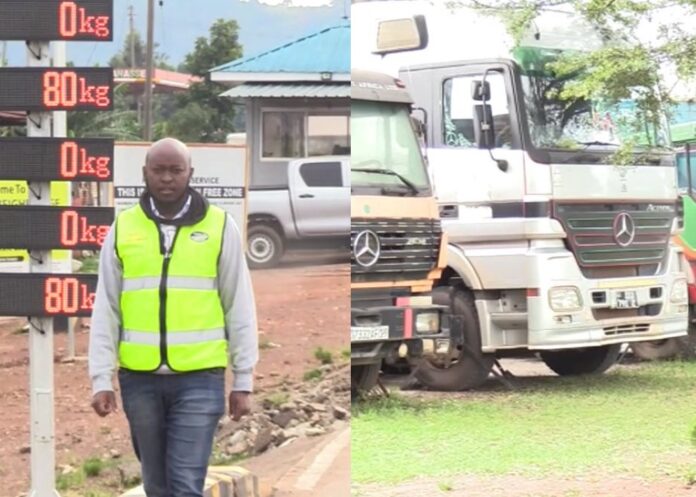The Kenya National Highways Authority (KeNHA) has pledged to intensify axle load enforcement along the northern corridor in an effort to curb damage to the country’s multi-billion-shilling road network.
Speaking during a media tour of the Webuye Weighbridge on Tuesday, Seth Ongwae, KeNHA’s Webuye Cluster Operations Manager, said mobile enforcement teams would be expanded to pursue truck drivers using unofficial “panya routes” to avoid weighbridges.
“We have a big problem where rogue drivers are resorting to secret routes to evade axle load checks. In the long run, this damages rural roads that were never designed for heavy trucks,” Ongwae warned.
Ongwae noted that technological innovations were increasingly helping enforcement units stay ahead of violators. Virtual weighbridges, CCTV surveillance, and number plate recognition systems now provide real-time tracking and near-accurate weigh-in-motion readings. “Technology is giving us the upper hand in identifying and apprehending those who defy regulations,” he said.
The Webuye Weighbridge is supervised by Savory Agencies Limited, which oversees compliance across more than 2,000 kilometres of the northern corridor. Current compliance levels stand at 95 per cent, attributed to a mix of self-regulation within the trucking industry, awareness campaigns, and technological upgrades.
As a result, KeNHA reports reduced wear and tear on highways, while truckers themselves acknowledge that improved compliance has lowered vehicle maintenance costs and extended servicing schedules.
Even so, challenges remain. Mobile patrol units continue to report attacks and obstruction from goons linked to sections of the trucking industry, particularly those involved in sand and loose cargo haulage.
To address these threats, the Directorate of Criminal Investigations (DCI) has pledged closer cooperation with KeNHA’s Axle Load Enforcement Unit (ALEHU) to root out criminal networks undermining compliance.
Beyond enforcement, KeNHA is also investing in infrastructure upgrades at the Port of Mombasa, where congestion remains a key challenge for goods movement along the regional trade hub.
“Protecting our roads is not just about saving taxpayers money,” Ongwae stressed. “It is about safeguarding the efficiency of our transport corridors, which are critical to Kenya’s economy and to our neighbours who rely on them.”



















